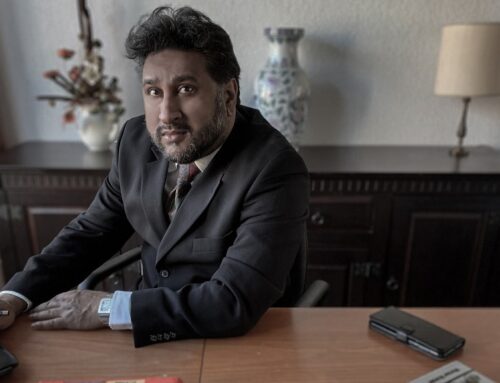
Geert Bourgeois, Minister-President of Flanders, discusses what makes his region stand out as a business base and investment target. He highlights the region’s ambitious goals for 2020.
European Times: What makes Flanders special?
Geert Bourgeois: Flanders is a one-of-a-kind European region. Around 60% of Europe’s purchasing power lies within a 500-km radius. Our region also has incredible transport infrastructure, including four major ports (at Antwerp, Ghent, Zeebrugge and Ostend), a vast network of inland waterways, the highest density of motorways and railways in Europe, and a leading international airport in Brussels. Brussels International has a cargo-handling facility that was named best cargo airport in 2014 at the global World Air Cargo Awards. It is consistently at the top of the charts for time- and temperature-sensitive shipments. Because of its infrastructure, Flanders is a key logistics hub for many sectors.
European Times: What about Flanders’ role as a diplomatic and cultural centre?
Geert Bourgeois: Flanders is at the heart of Europe’s decision-making since Brussels is not only the capital of Belgium but also of Europe. Flanders is literally at the crossroads of northern and southern Europe, which is one reason it has such a diversified society, bringing together Anglo-Saxon, Latin and Germanic cultures. Flanders maintains strong relations with its neighbours (the UK, the Netherlands, Germany, Luxembourg and France) and is a place where people not only meet for trade, but also to exchange ideas and experiences. This makes Flanders a prime test platform for foreign companies
European Times: Why should investors choose Flanders?
Geert Bourgeois: Flanders has a very business-friendly investment climate, particularly for companies involved in leading-edge technologies, since the region is known for its knowledge-based economy. Flanders has famous universities in Ghent, Leuven, Antwerp and Brussels which are all centres for R&D and for high-quality human capital. The region’s state-of-the-art research facilities are dedicated to innovative fields, including nanoelectronics (IMEC), life sciences (VIB), energy and materials (VITO), manufacturing and the automotive sector (Flanders Make), and ICT (iMinds). A new centre focuses on advanced manufacturing.
European Times: What are your goals for Flanders in the next five years?
Geert Bourgeois: By 2020, Flanders aims to rank among the top five knowledge regions in Europe, have a 76% employment rate, and direct 3% of its GDP towards R&D. We will particularly focus on developing new ideas in transportation, logistics and supply-chain management; in ICT in general and ICT for socioeconomic innovation in particular, healthcare and healthcare services; new materials, nanotechnology and manufacturing;; and of course renewable energy, environment and the circular economy.





